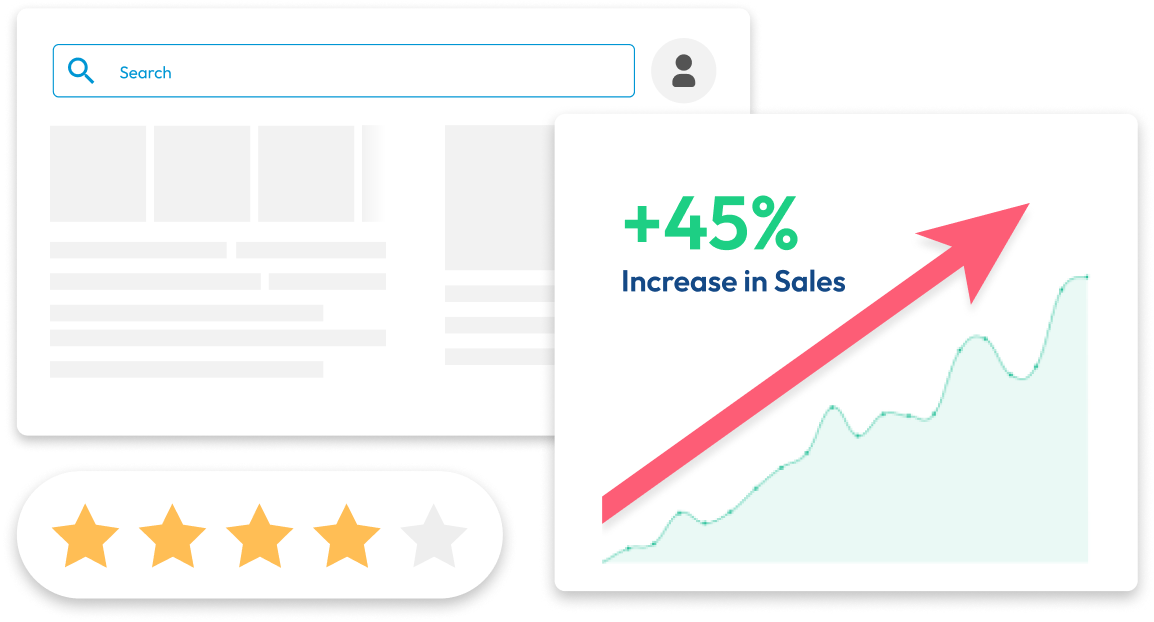Get a free consultation with us!
Stop wasting money and unlock the hidden potential of your advertising.
- Discover the power of intentional advertising
- Reach your ideal target audience.
- Maximize ad spend efficiency.

Have you ever thought about what makes industry leaders special? It’s not just their skills or experience-it’s their personal brand. In a world where everyone is trying to get noticed, having a strong personal brand can really set you apart. Let’s discuss why personal branding matters, how to figure out your brand, and practical steps to build and keep it strong. Ready to boost your career and stand out? Let’s go! Stop wasting money and unlock the hidden potential of your advertising. Personal branding is about creating an identity for yourself as you would for a business brand. It’s how you present yourself, your values, beliefs, and personality to the world. Whether you're a solopreneur or an established business owner, your personal brand helps your audience identify and understand you. Think of personal branding as the story of you-your skills, experiences, and what makes you unique. This narrative can be shared through various mediums such as social media, blogs, and speaking engagements, helping you connect with your audience on a deeper level. Whether you’re an entrepreneur, working in an office, or an artist, your personal brand can greatly affect your career and opportunities. Here are some reasons why it’s important: Builds Trust and Credibility A strong personal brand helps you gain the trust of others. When people know who you are, they are more likely to engage with you. For example, Simon Sinek, a motivational speaker, built trust by focusing on the idea of "Start With Why," which helps people understand the purpose behind their actions. Makes You Stand Out in a Busy Market It's tough to stand out when there are so many talented people. A good personal brand makes it easier for clients or partners to pick you. Gary Vaynerchuk, a successful entrepreneur, stands out because he is authentic and hardworking, which has helped him become an expert in digital marketing. Helps in Your Long-Term Career A strong personal brand can help you in the long run. It provides a solid base for new jobs or projects. Oprah Winfrey is a great example - her brand is about empowerment and inspiration, which has helped her keep her audience as she moved from TV to starting her own network. A strong personal brand is important for success - it builds trust, helps you stand out, and leads to future opportunities. Take time to define your personal brand-it could open doors for you. Your personal brand is not just about how others perceive you - it reflects your values, passions, and the unique contributions you can make. Here’s how to define your personal brand effectively: Identify Your Unique Value Proposition Your unique value proposition (UVP) makes you special and different from everyone else. Think of it as a personal motto explaining how you can help people or improve their lives. To find your UVP, ask yourself: What are my strengths? What skills do I have that others might not? What experiences have shaped me? And what topics or activities am I passionate about? You can create a clear statement that highlights what you bring to the table by answering these questions. Set Personal Branding Goals Setting goals for your personal brand is like having a map for a journey. It helps you know where you want to go and how to get there. For example, if you want to grow your presence on social media, you might set a goal to gain a certain number of followers each month. Or, if you dream of speaking to groups about your interests, you could aim to book a few speaking engagements each year. Having specific goals can help you track your progress and stay motivated, making it easier to reach your personal branding dreams! Creating a strong online presence is important today, whether you want to start a business, promote yourself, or share your interests. Here are some easy steps to help you build a great online presence: 1. Create a Professional Website Your website is like your online home. It’s where people can learn about you and what you do. Make sure your website looks nice, is easy to use, and has important sections like an "About Me" page, a portfolio (if you have one), and a way for people to contact you. For example, if you’re a graphic designer, your website should show off your best artwork. Include pictures of your designs with short descriptions of each project. Write a little bit about yourself, like how you got into design and what you love about it. Make it easy for people to reach out to you by adding a contact form or your email address. 2. Optimise Your Social Media Profiles Social media is a powerful way to share your brand. Make sure your profiles look good by using a clear, professional photo and writing a catchy bio that tells people who you are and what you do. Post regularly about topics that match your brand. For instance, if you’re a fitness coach, use a picture of you exercising as your profile photo. In your bio, mention your qualifications and the types of workouts you offer. Share fitness tips, success stories from your clients, and fun videos of your workouts to connect with your audience. 3. Start a Blog and Create Content Writing a blog is a great way to show what you know and connect with people. You can share tips, stories, and experiences about things you’re passionate about. This helps you look like an expert and makes it easier for people to find you online. For example, if you’re a financial advisor, you could write blog posts about saving money, budgeting for college, or planning for retirement. Use simple language and real-life examples to explain things. Encourage your readers to ask questions in the comments so you can interact with them. 4. Network and Collaborate Meeting new people in your field is crucial for growing your online presence. Join online groups, attend virtual events, and collaborate on projects to reach more people and build your reputation. For instance, if you’re a web developer, you might attend online tech conferences to meet other developers. Join Facebook groups or Discord servers to chat with others and share ideas. You could collaborate with a designer to create a cool website or write a blog post combining both of your skills. 5. Be Consistent and Authentic Being consistent and true to yourself is key to building a strong online presence. Post regularly, use a similar style in your posts, and always be honest about who you are. Engage with your audience by replying to comments and messages. For example, if you sell handmade jewellery, keep your website and social media looking similar. Share pictures of your creative process and tell personal stories that connect with your followers. Respond to their comments and messages to build a loyal community. Building a strong online presence takes time and effort, so be patient. Try different strategies and always focus on providing value to your audience. With consistency and authenticity, you can create a powerful personal brand that helps you reach your goals. Networking and collaboration are important parts of building your personal brand. They help you connect with others, share ideas, and grow your reputation. Here are some easy-to-understand strategies with examples to help you get started: 1. Attending Industry Events Networking means meeting people who share your interests or work in your field. Attending industry events, like conferences and meetups, is a great way to connect with these people. At these events, you can learn new things, share your knowledge, and make friends who might help you in the future. Example: Imagine you love video games and want to become a game developer. You could attend a gaming convention where you meet other gamers and developers. You might learn about the latest game design trends and even meet someone who can help you find an internship! 2. Connecting with Influencers Influencers are people who have a lot of followers on social media and can help spread the word about your brand. Building real relationships with influencers in your field can help you reach more people. Example: If you’re a fashion enthusiast, you might follow popular fashion bloggers on Instagram. Engage with their posts by liking, commenting, and sharing your thoughts. If you introduce yourself to one of their events, you could collaborate on a project, like a fashion lookbook, which would expose you to their audience. 3. Collaborating on Projects Working with others on projects can help you build your brand and reach new audiences. When you collaborate, you combine your strengths with someone else’s, which can lead to amazing results. Example: If you’re a talented writer and you know a great artist, you could team up to create a comic book. Your writing and their artwork would make a fantastic product, and both of you could share it with your followers, reaching a wider audience together. One of the best ways to build your personal brand is to show what you know. Here are some ways to do that: Public Speaking Speaking at events is a great way to share knowledge and build a reputation. Look for speaking chances at school events, local workshops, or community gatherings. Example: If you're passionate about environmental issues, you could give a presentation at a local community center about reducing waste. This not only shows your expertise but also helps others learn. Writing Books and E-books Writing a book or e-book can establish you as an expert in your field. Share your knowledge in a way that helps others. Example: If you’re really good at baking, consider writing a simple e-book with your favourite recipes and baking tips. You can share it on your website or social media, helping others while building your brand. Participating in Interviews and Podcasts Being interviewed or appearing on podcasts is a great way to share your story and expertise with more people. Look for shows that focus on your interests or field. Example: If you’re a young entrepreneur, you could reach out to a podcast that features young business owners. Sharing your journey can inspire others and help you connect with new audiences. Once you’ve built your brand, it’s important to keep it strong. Here are some tips: By following these strategies, you can effectively network and collaborate to build a strong personal brand. Remember, it takes time and effort, but the connections you make and the reputation you build will be worth it! Building a personal brand isn’t just about getting noticed right now - it can have lasting benefits that help you throughout your life. Here are some key long-term advantages of developing a strong personal brand: 1. A Legacy is Built A strong personal brand helps you create a legacy, which is something that lasts even after you’re gone. It reflects your values, skills, and the positive impact you’ve made in your community or industry. When people think of your name, they will remember the good things you’ve done and your shared expertise. Example: Consider famous figures like Martin Luther King Jr. or Malala Yousafzai. Their personal brands are built on their values and contributions to society. Even years later, people remember them for their dedication to justice and education. By building your own brand, you can leave a similar mark in your field, whether it’s in sports, art, science, or any other area. 2. Continuous Improvement and Growth Personal branding is not a one-time thing - it’s an ongoing journey. As you grow and learn, your brand can grow with you. This means you should always look for ways to improve yourself and your brand. Example: If you’re passionate about technology, you might start by sharing your knowledge on social media. Over time, you could take online courses to learn new skills, attend workshops, or even get certifications. As you gain more knowledge, update your online profiles and share what you’ve learned. This shows that you’re committed to growth and helps you stay relevant in your field. 3. Staying Updated with Trends To keep your personal brand strong, it’s important to stay informed about what’s happening in your industry. This means paying attention to new trends, tools, and ideas that can help you improve. Example: If you’re interested in fashion, follow popular fashion blogs, attend local fashion shows, or join online fashion communities. By staying updated, you can share the latest trends with your audience and position yourself as someone who knows what’s current in the fashion world. 4. Adapting Your Brand Strategy As you grow, your interests or goals may change. That’s okay! It's important to adapt your brand strategy to reflect who you are now and what you want to achieve. Example: If you start as a gamer sharing gameplay videos but later become interested in game design, you can shift your focus. Begin creating content about game development, sharing your journey, and offering tips for others who want to learn. This adaptability shows that you’re flexible and willing to grow, which can attract new followers and opportunities. By focusing on these long-term benefits, you can build a personal brand that helps you succeed now and leaves a lasting impact on the future. Remember, your brand reflects who you are, so invest in it, keep improving, and watch it grow! Building your personal brand is a great way to stand out, gain trust, and create new opportunities. Following these tips can create a strong brand that shows your unique skills and values. Remember, personal branding is a journey that takes time. Stay true to yourself, keep working at it, and watch your brand grow. If you want to take your personal brand even further, check out Xugar's digital marketing services in Melbourne. We can help you develop your brand, create interesting content, and connect with the right audience. Ready to start building your legacy? Connect with us today, and let’s work together to make your personal brand shine!Get a free consultation with us!
What is Personal Branding?
Why Having a Strong Personal Brand Matters
Defining Your Personal Brand
Building Your Online Presence
Networking and Collaboration
Showcasing Your Expertise
Maintaining Your Personal Brand
The Long-Term Benefits of Personal Branding
Start Building Your Personal Brand Today!





WINNER

FINALIST

FINALIST

WINNER

WINNER

FINALIST

FINALIST

WINNER
